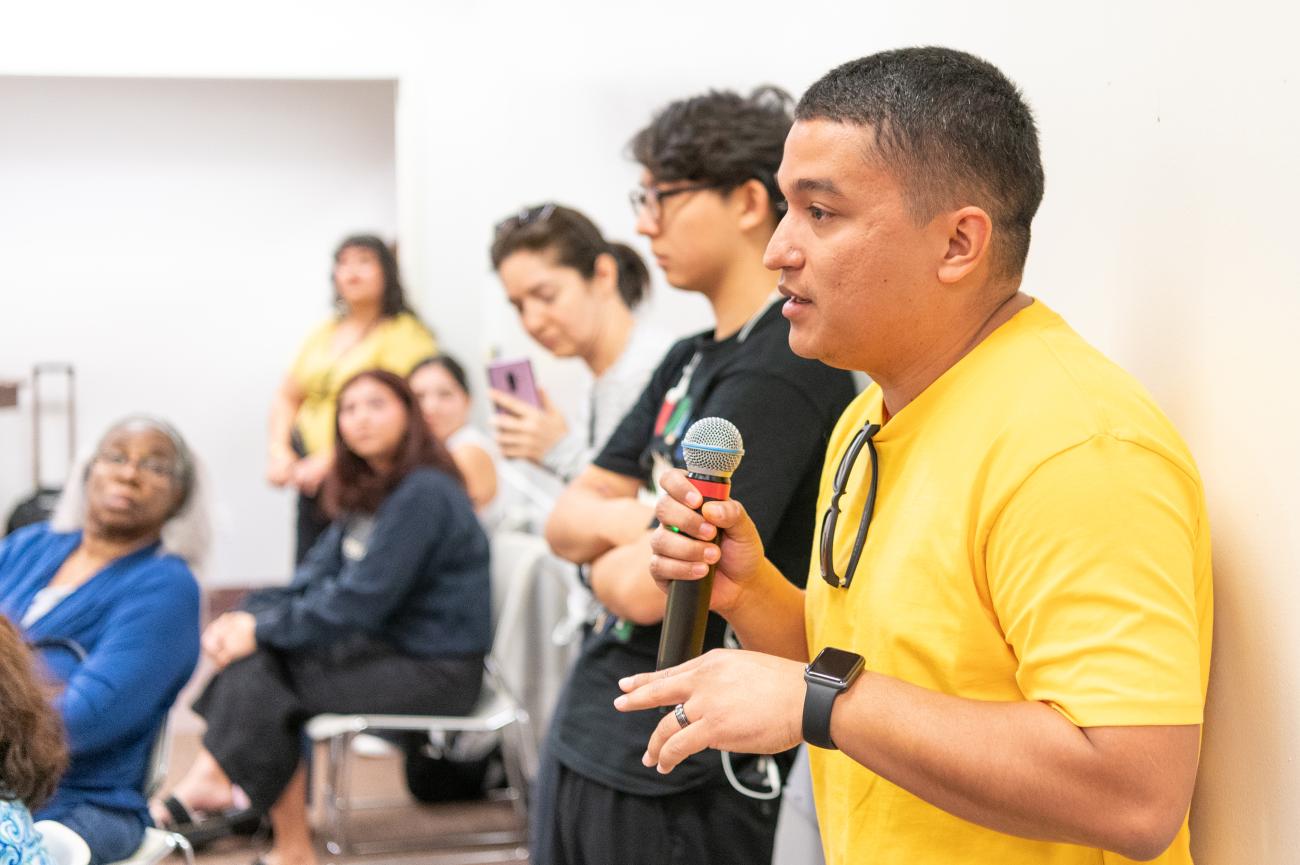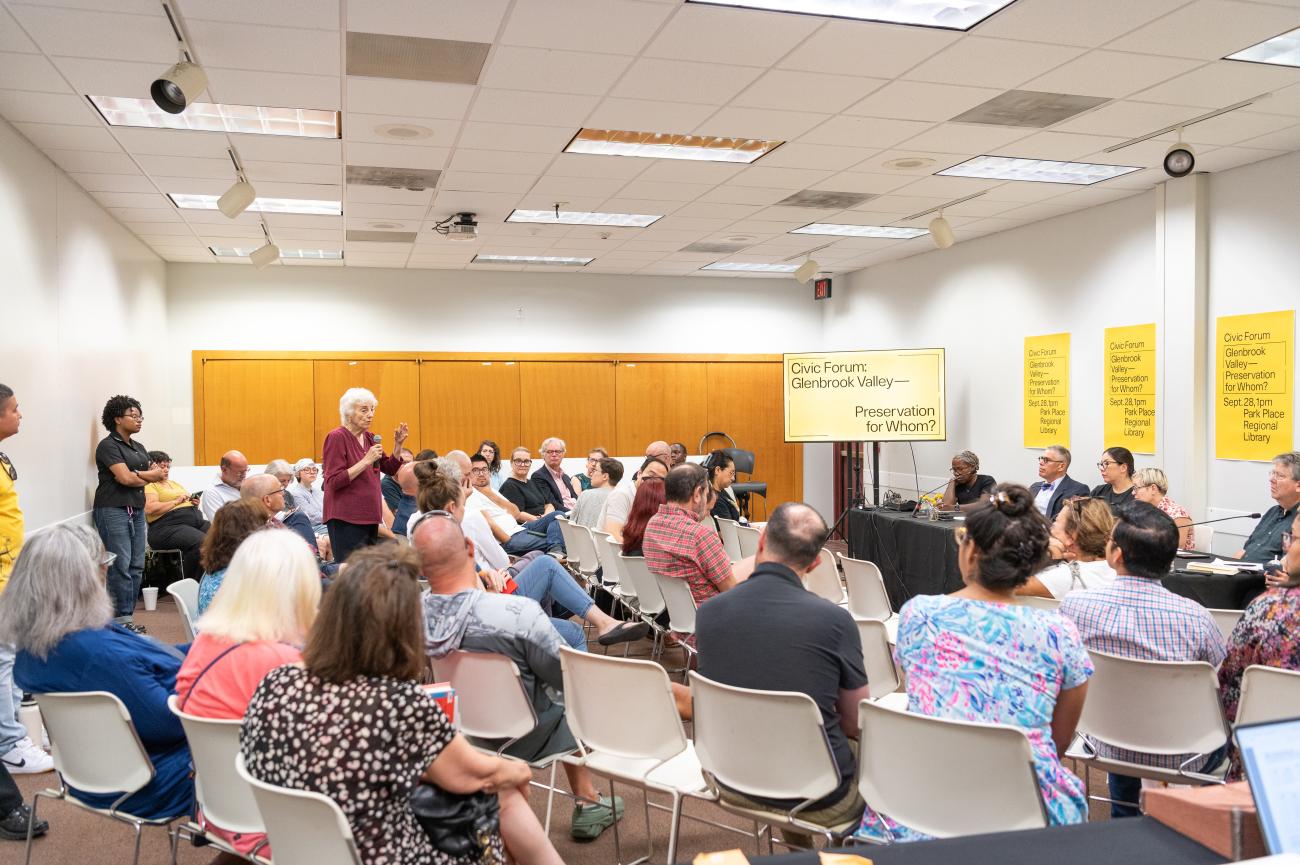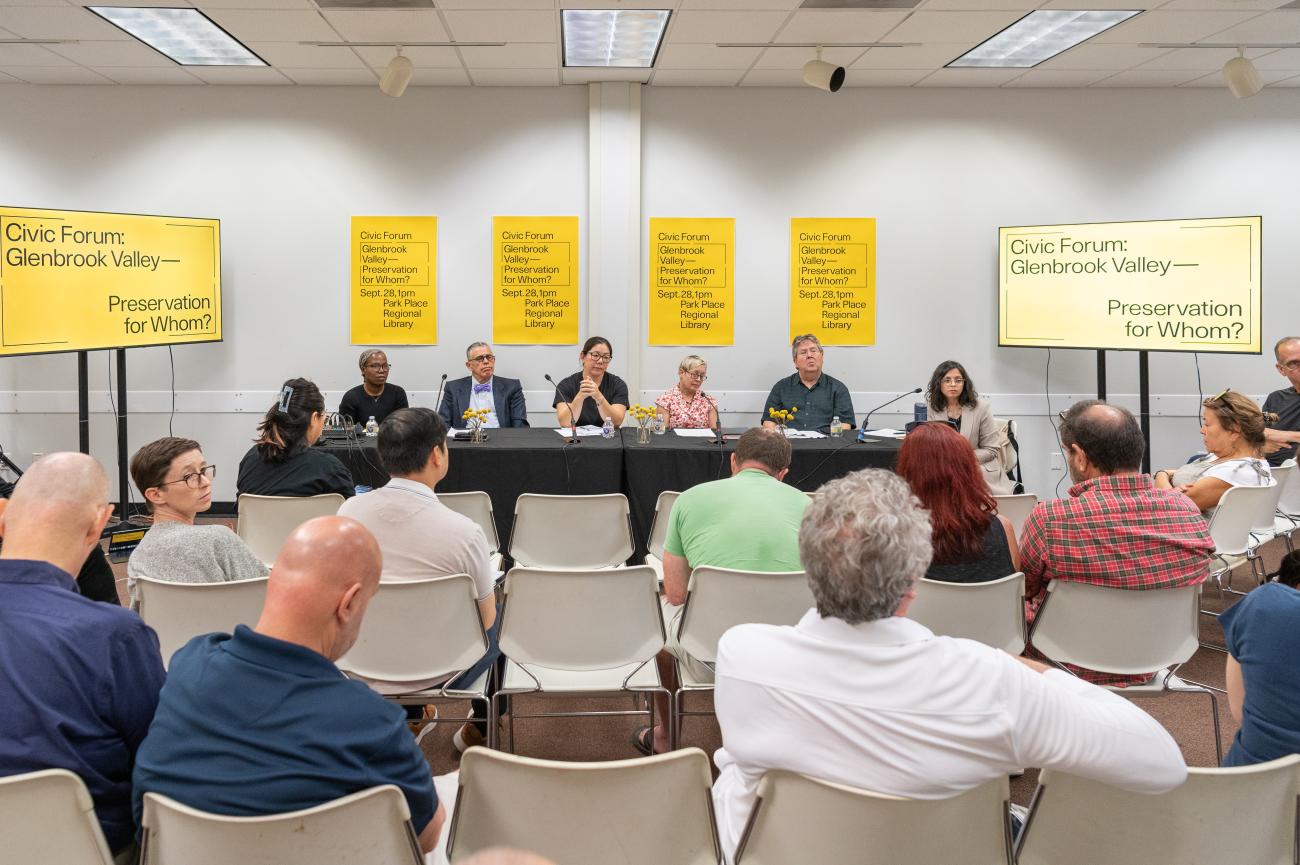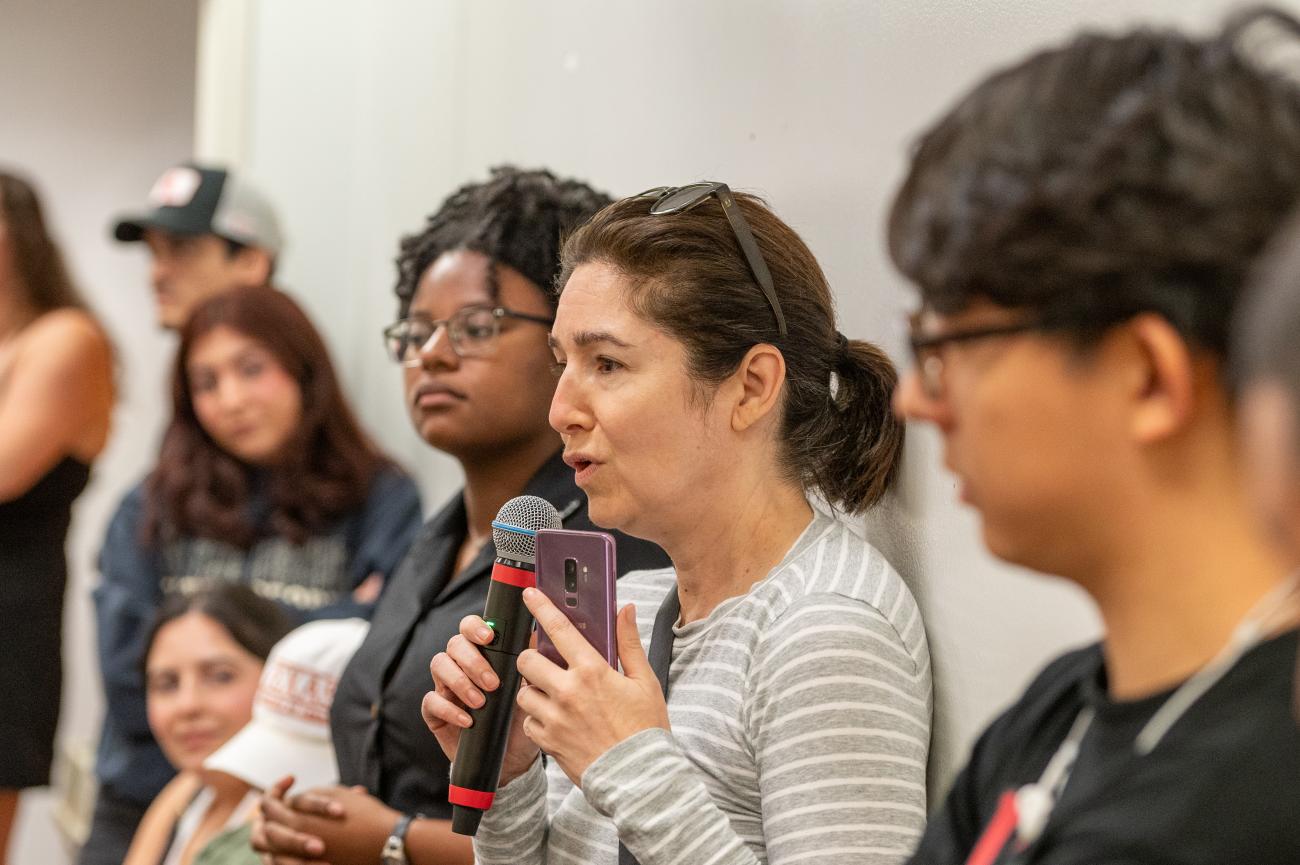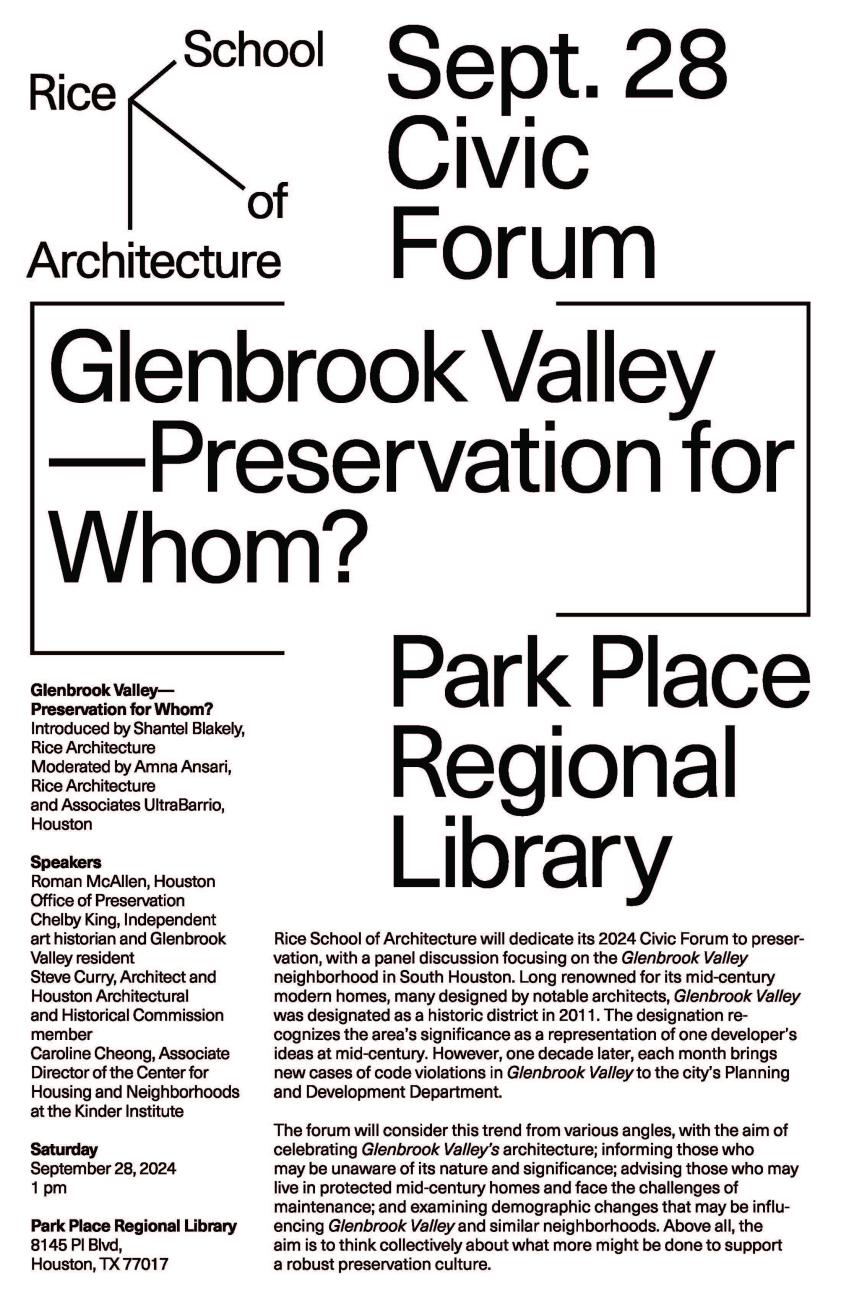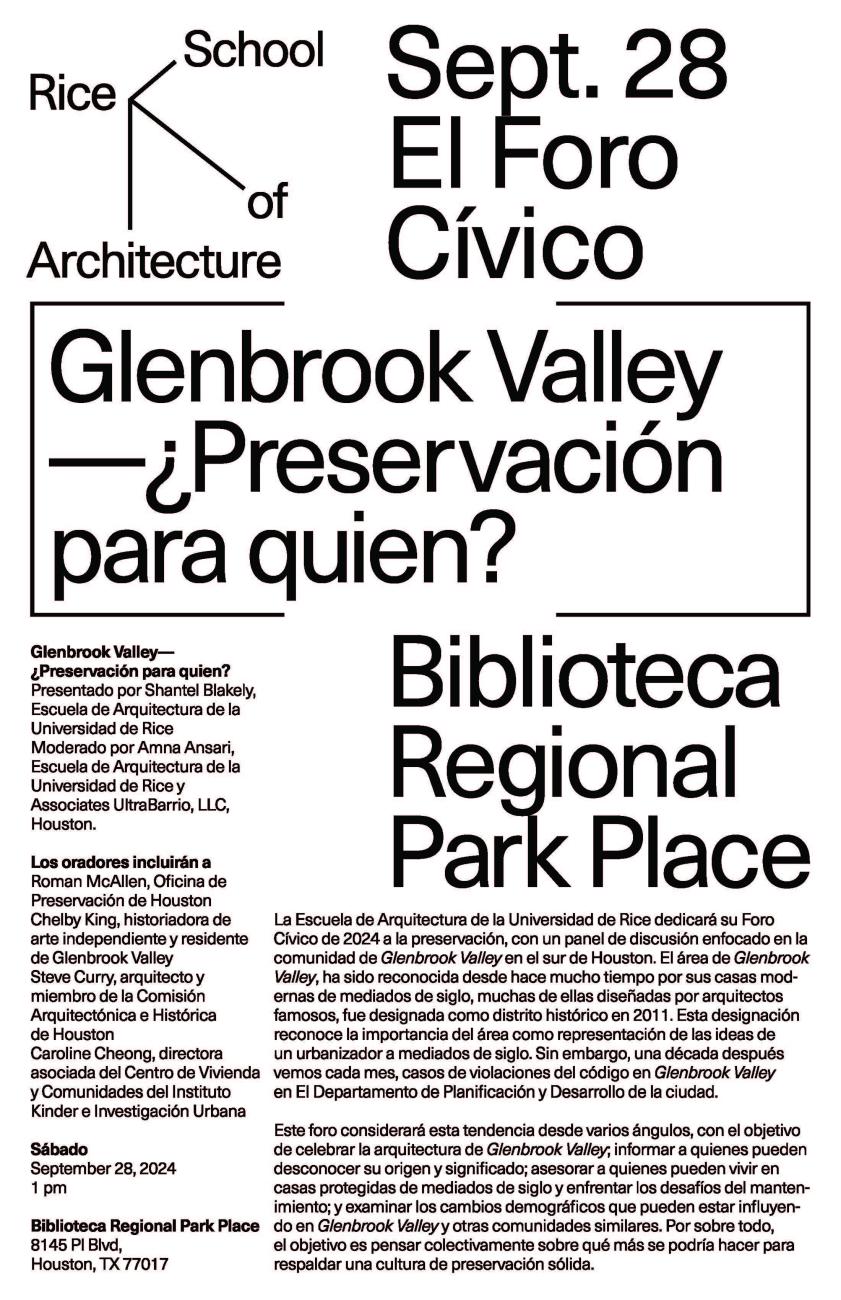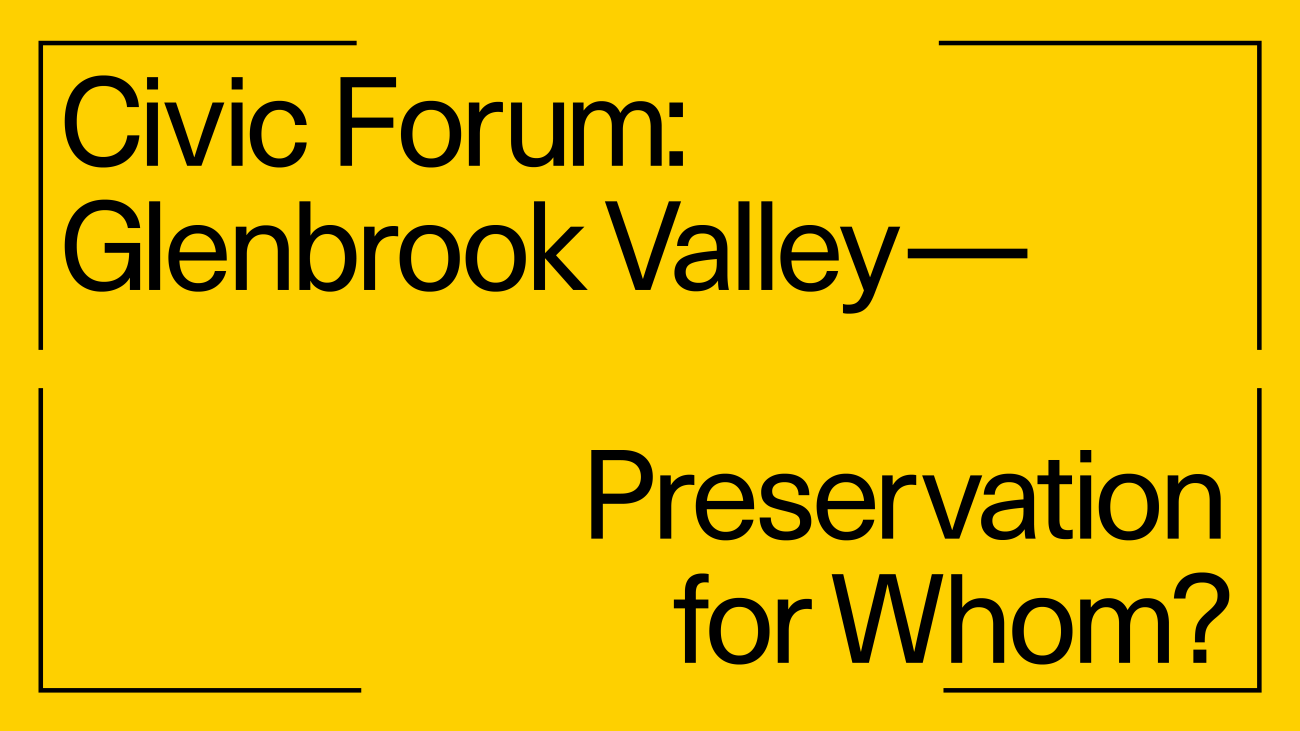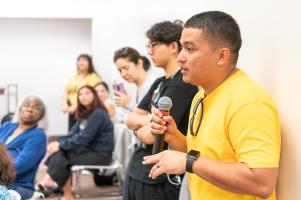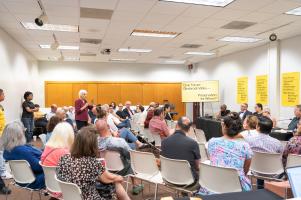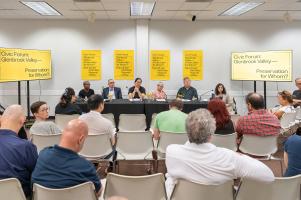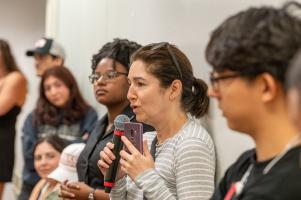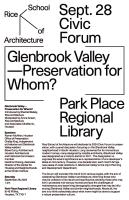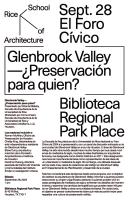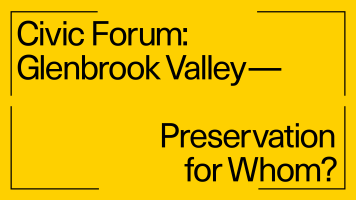Civic Forum 2024: Preservation for Whom?
Read the event summary in Spanish and Vietnamese.
Who benefits from historic preservation? The question sparked conversation at the Rice School of Architecture’s Civic Forum on September 28, 2024, an annual event that spotlights how architecture impacts the Houston community. Assistant Professor Shantel Blakely introduced the thinking and research behind this question and invited researchers, government officials, and community leaders to discuss the intersection of historic preservation and community dynamics in Houston’s Glenbrook Valley neighborhood.
Igor Marjanović, William Ward Watkin Dean of the Rice School of Architecture, welcomed participants to the event, held at Park Place Regional Library. He said, “Since it was first held in 1973, our school’s Civic Forum serves as a platform for raising important community issues and debating how civic leaders, community members, educators, and architects can work collectively to imagine new solutions to Houston’s urban challenges.”
The Civic Forum brought together community members, Glenbrook Valley homeowners, architectural scholars, and government officials with the goal of hearing from all stakeholders about both the intended and unintended impacts of historic preservation policies in Glenbrook Valley. Furthermore, the event sought to identify ways that historic preservation might benefit all, working within current Houston historic preservation policies and regulations.
Caroline Cheong, associate director of the Center for Housing and Neighborhoods at the Kinder Institute for Urban Research, framed the discussion, presenting a nuanced analysis of the neighborhood’s shifting demographics. Her data underscore a growing Hispanic majority and a relatively stable educational profile. In recent years, Glenbrook Valley has seen an increase in residents with college and graduate degrees; today, only a third of residents over age 25 have no postsecondary degree.
Glenbrook Valley is the only neighborhood in southeast Houston with a historic designation. Houston Archaeological and Historical Commission member Steve Curry, an architect, explained that the homes in the area are important historic examples of mid-century modern design, and he offered details about which architectural elements are particularly important to preserve.
Cheong spoke to property value trends and noted a modest but steady increase since the designation. Roman McAllen, a member of the Houston Office of Preservation, provided insights on the rise in applications for certificates of appropriateness—indicating heightened resident engagement in maintaining their homes within the district’s guidelines.
Moderated by Rice School of Architecture Visiting Critic Amna Ansari, a partner at Houston-based UltraBarrio, dialogue addressed diverse concerns, ranging from property values to the process that led to achieving the neighborhood designation. The conversation revealed divergent views within the community. Homeowners debated the tangible benefits of historic preservation, while renters and business owners expressed concerns over rising costs and economic stagnation, as exemplified by a 15 percent decline in retail occupancy over the past decade. Chelby King, a Glenbrook Valley resident and historic preservation advocate, voiced optimism, referencing the visible revitalization efforts in the form of home renovations. Glenbrook Valley residents emphasized the critical importance of clear, inclusive communications. Attendees explained that communicating in the native languages of residents, which means not only English but also Spanish and Vietnamese, is crucial.
Ultimately, the forum highlighted the complex interplay between government policy, statistical data, and lived experiences in Glenbrook Valley. As Ansari summarized, “The numbers give us a framework, but it’s the community’s vision that will ultimately guide Glenbrook Valley’s future.”
What we can do to make historic preservation help more Glenbrook Valley residents:
- The community is invested in its future and clearly wants to find ways to make historic preservation benefit all in Glenbrook Valley. Understanding this commitment is an important point of shared interest.
- Many voices expressed the need to improve access to information, better lines of communication, and transparency. Scheduling meetings to discuss historic preservation on weekends is helpful. Creating an accessible, user-friendly source of online information to offer current information on historic preservation would be beneficial. Do the neighbors of Glenbrook Valley want to lead this initiative?
- Sharing critical information with all residents means translating key written information into Spanish and Vietnamese.
The Civic Forum concluded with a sense of shared responsibility, with participants encouraging continued dialogue on how to balance preservation requirements with the pressing realities of a changing neighborhood proud of its historic architecture.
About Civic Forum and Public Program
Our discursive culture extends beyond our school building to public programs, community engagement, and partnerships. In line with our broad academic ambitions, the Rice School of Architecture continually seeks to expand our discourse beyond the university—to our city, region, and the world. Our public program includes lectures by architects, artists, and scholars from a wide spectrum of disciplines. Held annually since 1973, Civic Forum is a signature community event that brings together architects, planners, design enthusiasts, government representatives, and citizens alike to cover a range of urban topics, from taxation to historic preservation and urban parks. By programming public events both on and off campus, we seek to build new audiences and alliances in the city of Houston and beyond.
Media Contact:
Leah Ray, Consulting Communications Director
Rice School of Architecture
leah.ray@rice.edu


